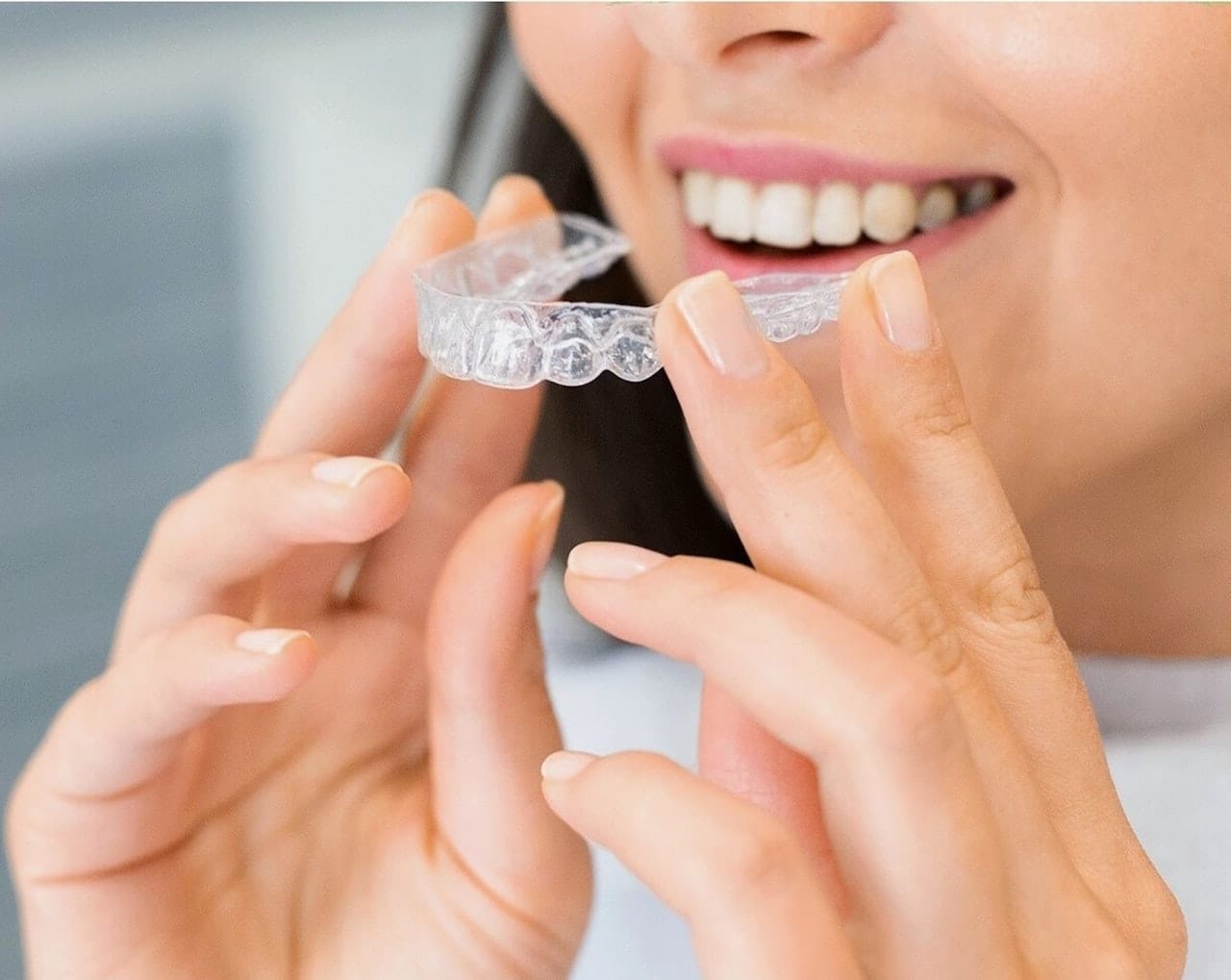
16 Nov What Types of Dental Issues Can Invisalign Fix?
Don’t think Invisalign is right for you? You might be surprised! There’s a reason Invisalign is such a popular choice when it comes to improving smiles. It’s powerful enough to correct many more alignment issues than crooked teeth alone. Here are six common problems that Invisalign can fix.
What Can Invisalign Fix?
1: Overbite
If your top front teeth overlap your bottom front teeth when you bite down, you have an overbite. It’s perfectly normal to have a little bit of an overbite. However, a bite that significantly or fully covers the bottom teeth can cause some serious problems.
One of the main problems with overbites is jaw pain. An overbite can also irritate the lower gums, increasing your risk of gum disease. You may even experience difficulty speaking and eating. If you have an overbite, Invisalign can help realign your bite to prevent these issues.
2: Underbite
Invisalign can also fix an underbite, which is the opposite of an overbite. If your lower front teeth overlap your upper front teeth as you bite down, you have an underbite. Similar to an overbite, an underbite can also affect how you speak and eat, and may also cause jaw pain and gum irritation.
3: Open Bite
An open bite makes chewing and biting especially difficult, because the top and bottom teeth do not touch when you close your mouth. Luckily, an open bite is another one of the many issues that can easily be corrected with Invisalign treatment.
4: Crossbite
You may have a crossbite if some of your upper teeth fit behind your lower teeth when closing your mouth. A crossbite differs from an underbite because it affects more than just the front teeth. If left untreated, this type of bite problem can lead to chipped teeth, enamel erosion, and gum recession. Treating a crossbite with Invisalign can prevent significant damage to your teeth and gums.
5: Gapped Teeth
Noticeable gaps between your teeth are more than just a cosmetic issue. Wide spaces between the teeth can easily trap food and plaque, increasing the risk of tooth decay. Plus, wide gaps mean that more of the tooth’s surface is exposed, leaving it extra vulnerable to bacteria. Invisalign can help protect your teeth by reducing the spaces between them.
6: Crowded and Crooked Teeth
Sometimes your mouth simply doesn’t have enough room to properly support all of your teeth. This causes your teeth to become crowded, and they could overlap each other or become very tightly spaced. Wisdom teeth that do not become impacted can also cause crowding if there is not enough space for them.
Crowding often leads to crooked teeth, but in some cases the teeth can erupt from the gums already crooked. Crowding and crookedness make it difficult to remove plaque with floss and a toothbrush. Invisalign can fix both crowded and crooked teeth to straighten your smile so you can brush and floss more effectively.
What Can’t Invisalign Fix?
Invisalign cannot fix severe cases of spacing and bite problems. If you have an extreme overbite, underbite, crossbite, or open bite, you may need metal braces or corrective surgery. Traditional braces may also be more effective if you have significant gaps between your teeth, if there’s extensive crowding, or if your teeth are badly crooked.
Invisalign in Prescott, Arizona
Thinking about aligning your smile? We’d be happy to take a look at your mouth and let you know whether you’re a good candidate for Invisalign. At Prescott Dentistry, we want to help you achieve healthier teeth and gums through simple and effective teeth straightening. Give us a call at 928-445-1660 today to schedule a consultation.
Images used under creative commons license – commercial use (11/16/2022). Photo by Arvind Philomin on Pexels



